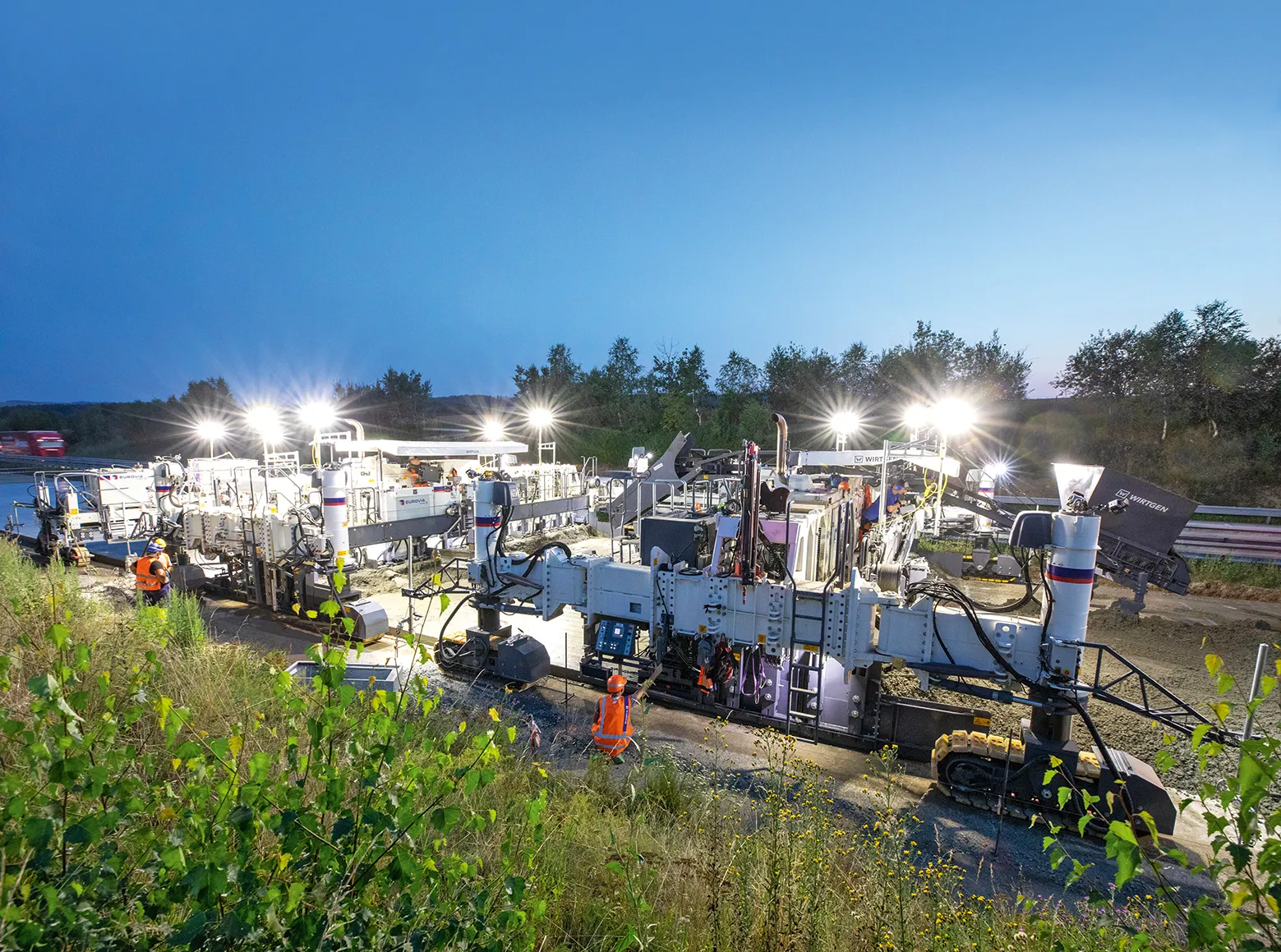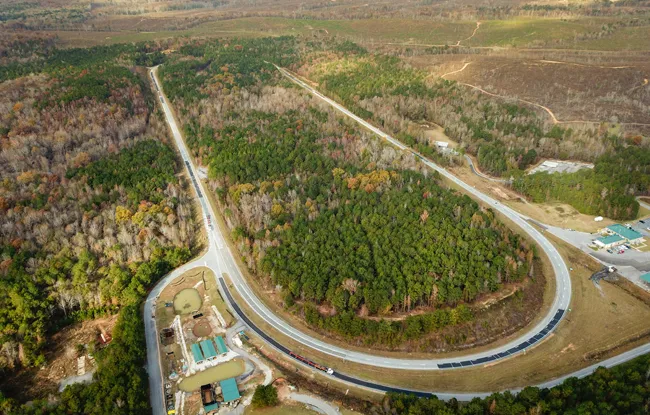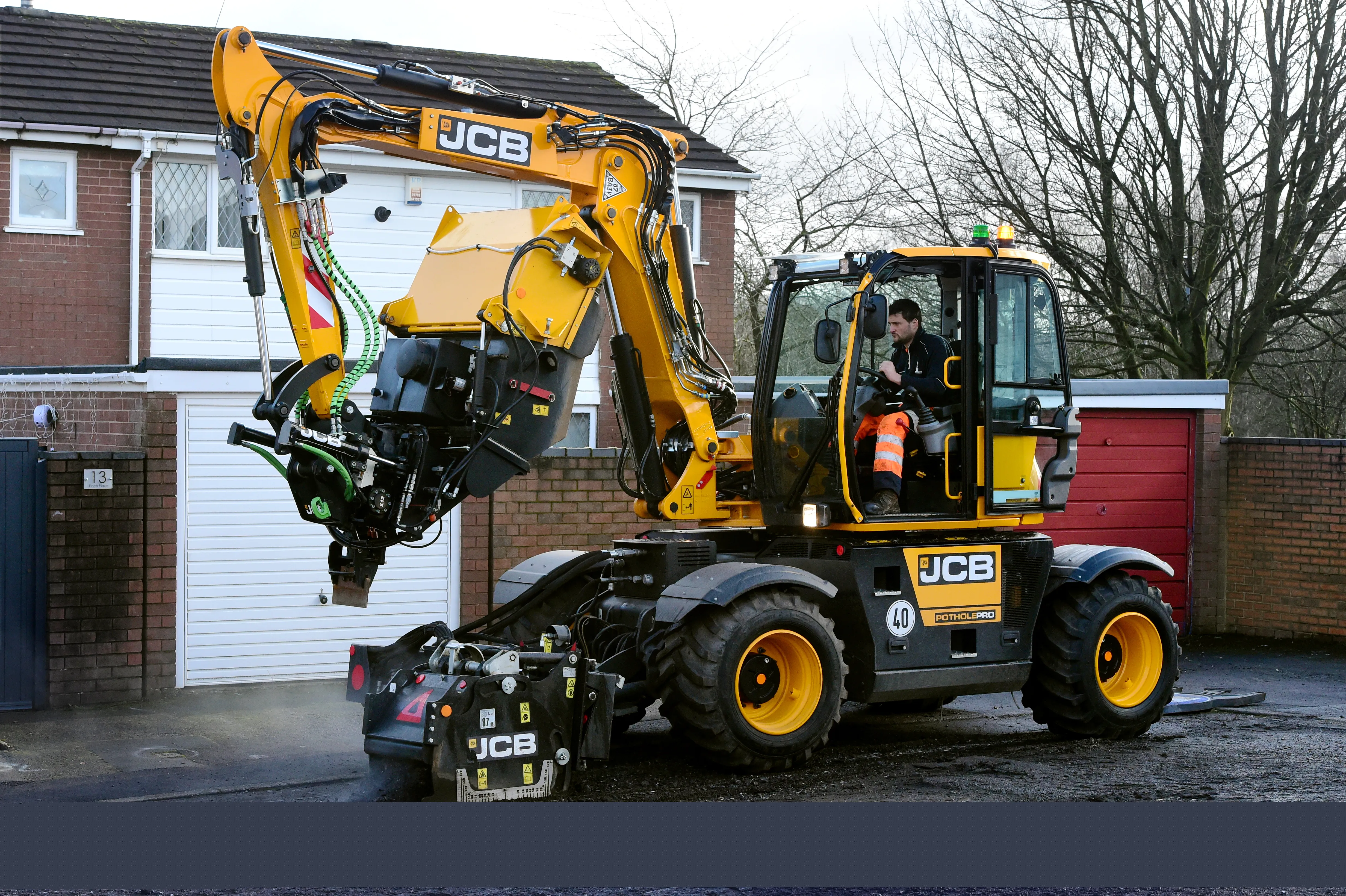
Two slipform pavers and a texture curing machine from Wirtgen helped rehabilitate the D1 motorway between the Czech Republic’s two largest cities – Prague and Brno.
Wirtgen’s paving train, working in the direction towards Prague, paved two layers in one pass while at the same time widened the two lanes. More than 60,000 tonnes of concrete were used over 20 days on the 67km stretch of the D1. This is equivalent to 333 tonnes per hour.
Contractor Eurovia CS used the new paving train from Wirtgen to pave the road with exposed aggregate concrete in optimal quality. Two SP 154(i) slipform pavers were used as bottom layer and top layer concrete pavers and a TCM 180(i) was the texture curing machine.
The SP 154(i) is equipped with four steerable and slewing crawler units so it can be controlled with maximum flexibility. The crawler units also make the pavers easy to load. The pavers’ ECO mode reduces fuel consumption and CO₂ emissions with only average power requirements.
The SP 154(i) features the same control panel design as other models in Wirtgen’s fleet of slipform pavers – operators need not learn anything new, a saving on training times.
The two-layer paving method is cost-effective because only the top layer consists of relatively expensive exposed aggregate concrete. Meanwhile, a less expensive mix can be used for the road bed. Paving the top concrete layer “wet-on-wet” produced an excellent bond between the layers on the 11.5m-wide and 27cm-high road surfaces.
Together, the 22cm thick bottom layer of concrete and the 5cm thick top layer of concrete produce a road surface with an extremely high bearing capacity. It is also capable of withstanding the constantly increasing axle weights of trucks transporting heavy loads. As a result, the use of the SP 154(i) also improves safety and makes roads more durable over the long term.
Wirtgen’s concrete paving trains consist of two slipform pavers and one texture curing machine. In general, the SP 154(i) can be set up and used as both a top layer and bottom layer paver. As a bottom layer concrete paver, the SP 154i is equipped with an automatic dowel bar inserter, up to three automatic longitudinal tie bar inserters and a concrete conveyor to the top layer concrete paver. When used as a top layer paver, an oscillating beam and super smoother work together to create an ideal concrete surface.
Texture curing machines like the TCM 180(i) bring up the rear of the paving train. They create different surface structures and spray a dispersion on the fresh concrete surfacing to prevent it from drying out prematurely. When paving with exposed aggregate concrete, on the other hand, a surface texture is not created; instead, the distinctive exposed aggregate concrete surface with a texture depth of around 1mm is produced by brushing off the top layer of slurry.
“We are thoroughly impressed with Wirtgen’s new SP 154(i) slipform paver. The resulting surface quality is absolutely remarkable,” said Roman Pistek, a concrete road construction technology specialist at Eurovia CS.








